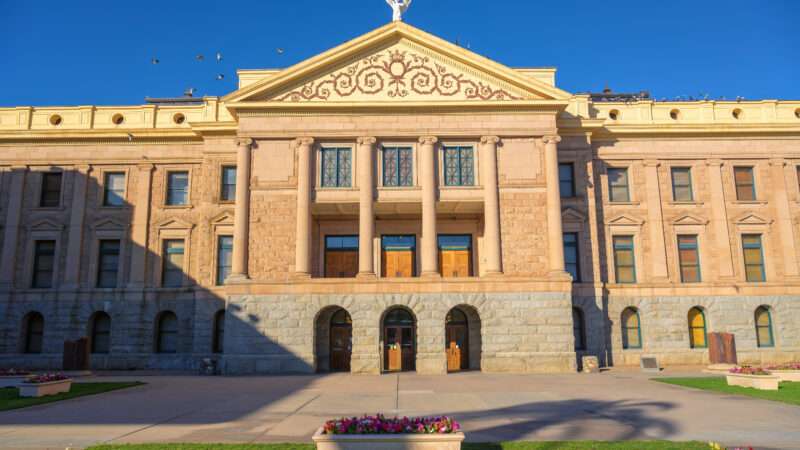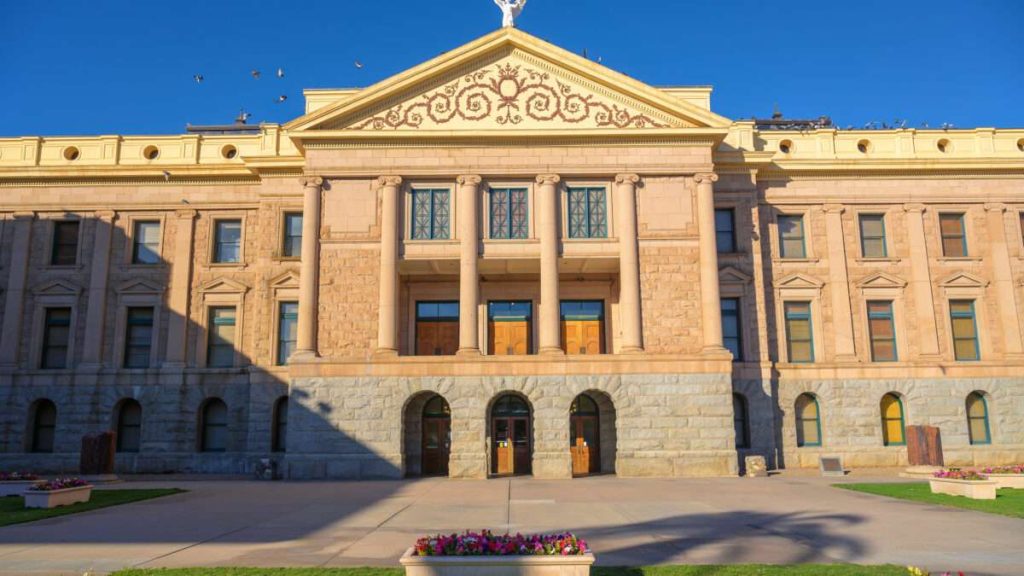
Arizonans voted against Proposition 135, a ballot measure that would have enshrined an “Emergency Declarations Amendment” to the constitution limiting the ability of their governor to extend emergency declarations among others. 56.8 percent of Arizona voters went against the proposition, with 68 percent of the vote counted as of press time.
Two years ago, Governor Doug Ducey signed a similar bill limiting the duration of a state of emergency to 30-day increments, which are eligible for extensions up to 120 days without the legislature’s approval. Proposition 135 would have set a hard cap of 30 days for states of emergency and prohibited the governor from extending them without approval from state lawmakers. Absent a decision from the state legislature, the declared state of emergency would automatically end after the allotted 30 days.
Under the ballot measure, certain types of emergencies—like a state of war, fire, and floods—would not be subject to the 30-day limit. Additionally, the legislature would have had the authority to alter or limit the governor’s powers when lawmakers extend an emergency declaration.
Apart from the amendment’s effects on emergency declarations, it also required the governor to call a special session upon the petition of “at least one-third of each house of the legislature,” according to the ballot’s language. Under current law, two-thirds of lawmakers in both chambers must vote in favor of a special session to force the governor to call one.
Republican lawmakers holding majorities in both chambers voted in 2023 for the amendment to be included on the 2024 ballot; no Democrats voted to include the ballot measure. The bill’s sponsor, state representative Joseph Chaplik (R–Scottsdale), cited the 700-day plus COVID-19 emergency order as a key reason for his support of the measure, according to The Arizona Republic. Rep. Chaplik told The Arizona Republic that the proposition would have allowed special sessions to occur immediately following a governor’s “abuses [of] their emergency power.”
Opponents of Proposition 135 cited concerns over the state’s ability to respond to emergencies. Requiring legislative approval might have slowed down the resources that states of emergency are meant to help allocate. The allocation of state resources, temporary suspension of regulations, enhanced information gathering, and speedy authorization of stricter public safety measures are all reasons states of emergency are declared.
Organizations like the Arizona Free Enterprise Club and the Arizona Libertarian Party endorsed Proposition 135, while groups such as the Arizona Public Health Association, Arizona Working Families Party, Arizona House Democrats, League of Women Voters of Arizona, and Planned Parenthood Advocates of Arizona were opposed.
A Noble Predictive Insights poll back in August found that voters were evenly split. Twenty-nine percent of registered voters said they would vote “yes” for Proposition 135, while 32 percent said they would vote “no.” In the end, however, the measure was not particularly close and failed by more than a 10-point margin.
The post Arizona Rejects Restrictions on Governor’s Emergency Powers appeared first on Reason.com.







